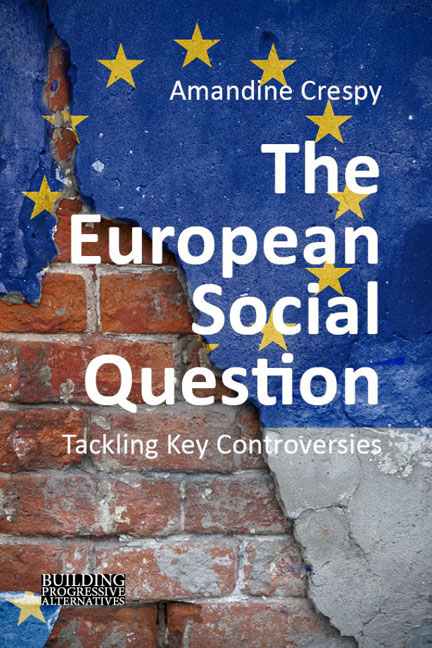Book contents
- Frontmatter
- Contents
- Acknowledgements
- Abbreviations and acronyms
- Dedication
- Introduction: “Social Europe” – irrelevant, catching up or dangerous?
- 1 What is the European social question?
- 2 Is the EU a key player in addressing social issues?
- 3 Are socially minded actors too weak in EU policy-making?
- 4 Is European social regulation a thing of the past?
- 5 Does liberalization undermine social cohesion?
- 6 Does the European social dialogue really protect European workers?
- 7 Does soft coordination support welfare states?
- 8 Is redistribution unconditional?
- 9 Is the EU fit for the social challenges of the twenty-first century?
- Conclusion: from the social question to the democratic question
- Index of CJEU judgments
- References
- Index
4 - Is European social regulation a thing of the past?
Published online by Cambridge University Press: 20 December 2023
- Frontmatter
- Contents
- Acknowledgements
- Abbreviations and acronyms
- Dedication
- Introduction: “Social Europe” – irrelevant, catching up or dangerous?
- 1 What is the European social question?
- 2 Is the EU a key player in addressing social issues?
- 3 Are socially minded actors too weak in EU policy-making?
- 4 Is European social regulation a thing of the past?
- 5 Does liberalization undermine social cohesion?
- 6 Does the European social dialogue really protect European workers?
- 7 Does soft coordination support welfare states?
- 8 Is redistribution unconditional?
- 9 Is the EU fit for the social challenges of the twenty-first century?
- Conclusion: from the social question to the democratic question
- Index of CJEU judgments
- References
- Index
Summary
In neo-functionalist terms, EU social policy appears to be a spillover from economic integration. It has expanded as the deepening of the single market through the four freedoms has brought on new regulatory needs at a European scale. Social regulation can be understood as the hard core of the EU's social governance. Its purpose has been to mitigate the negative effects of economic competition and create a level playing field (i.e. avoid the distortion of com¬petition because of contrasted social standards) between European countries with diverse levels and models of social protection. Whereas harmonizing social rules quickly proved to be impossible, European regulation has helped create new transnational social rights. A historical institutionalist approach (Pierson 1996: 188) helps to understand how some unintended consequences of past decisions combined with activism from socially minded actors have fed the con¬tinuous growth of social regulation in the EU. Today, the body of EU social law amounts to over 160 legally binding acts.1However, the EU's regulatory activity has slowed down since the mid-2000s, as shown in several studies (Graziano & Hartlapp 2019
; Pochet & Degryse 2017). Although the absolute number of social regulations and directives has not declined significantly, recent legislation tends to focus mainly on tech¬nical changes or minor revisions. The number of directives adopted and new initiatives to address new problems has fallen significantly since the end of the 1990s. On the other hand, the number of directives proposed but not adopted has also dropped considerably, which seems to indicate that the Commission has been less and less adventurous on the social front, proposing a text only when it is sure it has the backing of a majority in the Council and Parliament. Furthermore, a careful analysis of the nature of the regulation adopted shows that the EU's legislative output has been increasingly geared towards flanking the single market – especially by regulating workers’ mobility – rather than towards social policy objectives per se (Hartlapp 2019). With the inclusion of social issues in the Lisbon Strategy proclaimed in 2000, the lesser dynamism of social regulation has gone hand in hand with the rise of soft coordination through non-binding recommendations, benchmarks and peer review.
- Type
- Chapter
- Information
- The European Social QuestionTackling Key Controversies, pp. 71 - 92Publisher: Agenda PublishingPrint publication year: 2022



